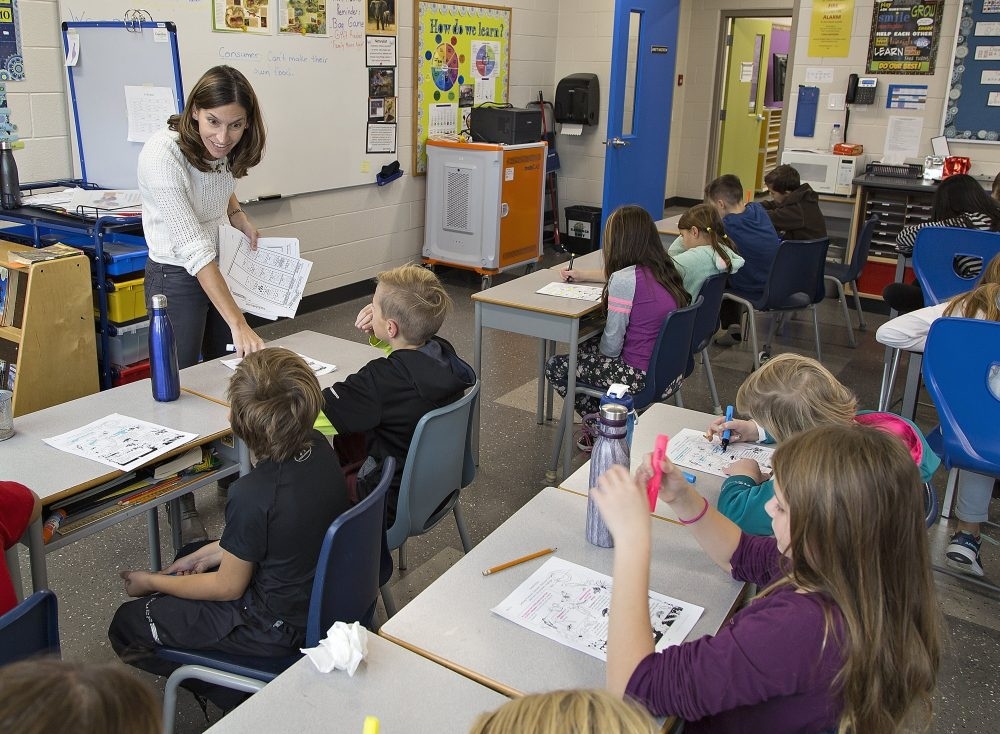Education
Parents Demand a Voice as Curriculum Changes Ignite Controversy

As the new school year begins, parents in Winnipeg are expressing significant concerns over their lack of involvement in educational decisions affecting their children. Many families feel increasingly excluded from discussions about curriculum changes, particularly regarding sensitive topics such as Indigenous history, gender identity, and sexual education. This situation has led to growing frustration, as public schools, which are intended to serve the community, often leave parents feeling like outsiders.
According to a 2023 survey by the Fraser Institute, a staggering 70 percent of Canadian parents desire more input into their children’s education, yet only 30 percent feel included in these discussions. The disconnect has prompted a reevaluation of the role parents play in shaping educational content.
Curriculum Changes Spark Debate
One of the most contentious issues revolves around the teaching of Canadian history. Recent revisions to textbooks and lesson plans have shifted the focus from traditional narratives about Canada’s founding and nation-building to a more critical examination of historical injustices, including the impacts of colonialism and the legacy of residential schools. While these subjects are undeniably important, many parents are concerned that a one-sided approach may provide students with a skewed perception of their national identity.
This concern is not merely academic; it has tangible consequences. Between 2018 and 2023, enrollment in private schools in Manitoba rose by 12 percent, while homeschooling saw an increase of almost 20 percent. Families are actively withdrawing their children from public schools, citing a lack of consultation and what they perceive as ideologically driven changes to the curriculum.
The issue transcends political affiliations; it fundamentally concerns trust and parental rights. When families feel sidelined, the effectiveness of public education diminishes. Historically, the process of updating curricula involved open town halls and public consultations, allowing parents to ask questions and provide feedback. Today, crucial decisions are often made in isolation, leading to widespread frustration among parents and creating tension within classrooms.
The Need for Collaboration
Teachers find themselves navigating these politically charged discussions without adequate support, further complicating the learning environment. Parents are not looking to control the classroom; rather, they seek a partnership in their children’s education. Engaging families can provide valuable insights that enhance learning outcomes and foster a collaborative atmosphere.
There are successful models from various U.S. states that demonstrate the potential benefits of parental involvement. For instance, some states implement parental review panels, which encourage family engagement while maintaining academic rigor. Such initiatives could be beneficial in Winnipeg, where the stakes are high.
Public education relies on shared responsibility. When parents are excluded from the decision-making process, trust erodes, enrollment declines, and community ties weaken. Winnipeg schools face the challenge of balancing transparency, diversity, and academic integrity, but they cannot achieve this alone. Parents must be included in discussions, rather than merely informed after decisions are made.
As the September school term unfolds, it is essential for parents in Winnipeg and throughout Manitoba to advocate for their right to be heard. With the future of public education at a critical juncture, the importance of inclusive dialogue cannot be overstated. Curriculum debates will continue, but exclusion from the process should not be the norm. The success of public education hinges on the active participation of families and the establishment of open lines of communication.
-

 Politics3 months ago
Politics3 months agoSecwepemc First Nation Seeks Aboriginal Title Over Kamloops Area
-

 World7 months ago
World7 months agoScientists Unearth Ancient Antarctic Ice to Unlock Climate Secrets
-

 Top Stories1 month ago
Top Stories1 month agoUrgent Fire Erupts at Salvation Army on Christmas Evening
-

 Sports1 month ago
Sports1 month agoCanadian Curler E.J. Harnden Announces Retirement from Competition
-

 Lifestyle5 months ago
Lifestyle5 months agoManitoba’s Burger Champion Shines Again Amid Dining Innovations
-

 Top Stories2 months ago
Top Stories2 months agoFatal Crash on Highway 11 Claims Three Lives, Major Closure Ongoing
-

 Entertainment7 months ago
Entertainment7 months agoTrump and McCormick to Announce $70 Billion Energy Investments
-

 Science7 months ago
Science7 months agoFour Astronauts Return to Earth After International Space Station Mission
-

 Lifestyle7 months ago
Lifestyle7 months agoTransLink Launches Food Truck Program to Boost Revenue in Vancouver
-

 Technology5 months ago
Technology5 months agoApple Notes Enhances Functionality with Markdown Support in macOS 26
-

 Top Stories1 month ago
Top Stories1 month agoBlue Jays Sign Kazuma Okamoto: Impact on Bo Bichette’s Future
-

 Top Stories2 months ago
Top Stories2 months agoNHL Teams Inquire About Marc-André Fleury’s Potential Return





















